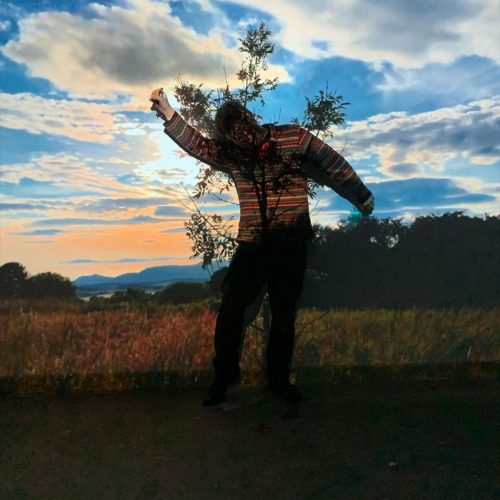
Rab Harling
Through photography, moving image and installation, Rab Harling explores the fragile intersections of memory, architecture and community. His work transforms overlooked spaces and displaced voices into luminous, enduring forms- revealing what remains when structures are dismantled and histories are threatened with erasure.
Full Introduction
Rab Harling is a contemporary artist working across photography, installation, and moving image, whose practice investigates the ways memory and identity are inscribed within architecture and urban space. His works do not merely document; they reconstruct- creating poetic cartographies of absence and presence that illuminate the human cost of displacement and gentrification.
Much of Harling’s practice centres on his long-term engagement with Balfron Tower, Ernö Goldfinger’s Brutalist landmark in East London. Through years of sustained access, Harling created an intimate series of projects that reveal both the stark geometries of the building and the lived realities of residents displaced during its controversial redevelopment. Exhibited widely and discussed in public forums, these bodies of work have become powerful lenses for understanding the politics of housing, community, and social change.
Harling’s work extends beyond the UK to an international stage. His photographic series Abandon Your Dreams was acquired for the permanent collection of the House of European History in Brussels, where it forms part of a wider narrative interrogating Europe’s shared, fractured histories. His projects have also been presented in major cultural and academic institutions including the Wellcome Collection, the London School of Economics and UCL’s Urban Laboratory, reflecting the interdisciplinary reach of his practice across art, architecture, and social research.
Alongside these institutional contexts, Harling’s practice has attracted critical attention in the wider cultural sphere. His projects have been reviewed in leading outlets such as The Guardian, The Art Newspaper, RIBA Journal, Time Out, and TANK Magazine, while his work on the politics of housing has even been raised in the House of Lords. This breadth of recognition speaks to the power of his practice in shaping conversations that extend well beyond the gallery.
In Harling’s work, the overlooked becomes luminous. What might otherwise dissolve into obscurity is given weight, texture, and breath- an invitation to pause, to remember, and to consider what it means to inhabit space together.
Updated: October 2025
